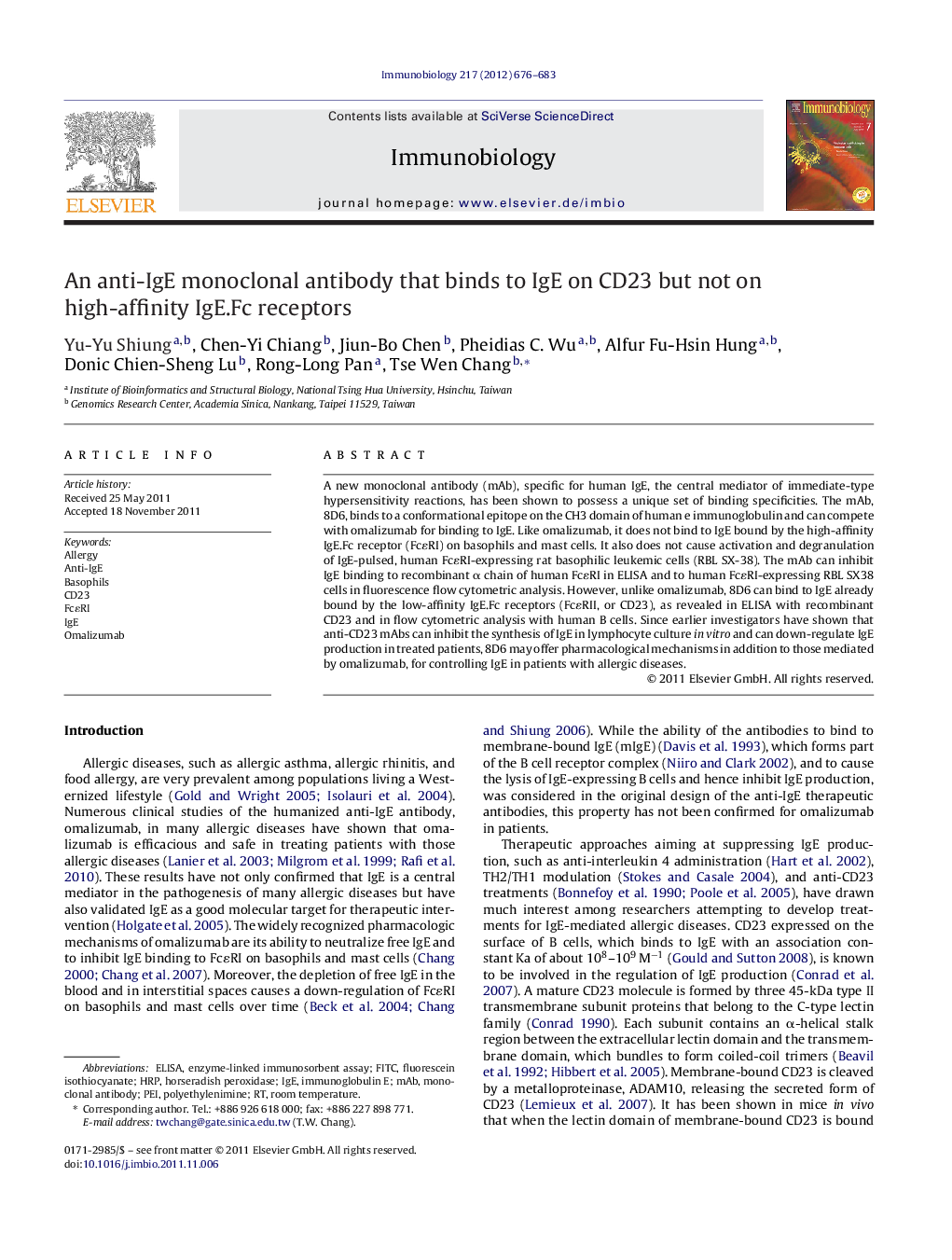| کد مقاله | کد نشریه | سال انتشار | مقاله انگلیسی | نسخه تمام متن |
|---|---|---|---|---|
| 2182937 | 1095532 | 2012 | 8 صفحه PDF | دانلود رایگان |

A new monoclonal antibody (mAb), specific for human IgE, the central mediator of immediate-type hypersensitivity reactions, has been shown to possess a unique set of binding specificities. The mAb, 8D6, binds to a conformational epitope on the CH3 domain of human e immunoglobulin and can compete with omalizumab for binding to IgE. Like omalizumab, it does not bind to IgE bound by the high-affinity IgE.Fc receptor (FcɛRI) on basophils and mast cells. It also does not cause activation and degranulation of IgE-pulsed, human FcɛRI-expressing rat basophilic leukemic cells (RBL SX-38). The mAb can inhibit IgE binding to recombinant α chain of human FcɛRI in ELISA and to human FcɛRI-expressing RBL SX38 cells in fluorescence flow cytometric analysis. However, unlike omalizumab, 8D6 can bind to IgE already bound by the low-affinity IgE.Fc receptors (FcɛRII, or CD23), as revealed in ELISA with recombinant CD23 and in flow cytometric analysis with human B cells. Since earlier investigators have shown that anti-CD23 mAbs can inhibit the synthesis of IgE in lymphocyte culture in vitro and can down-regulate IgE production in treated patients, 8D6 may offer pharmacological mechanisms in addition to those mediated by omalizumab, for controlling IgE in patients with allergic diseases.
Journal: Immunobiology - Volume 217, Issue 7, July 2012, Pages 676–683